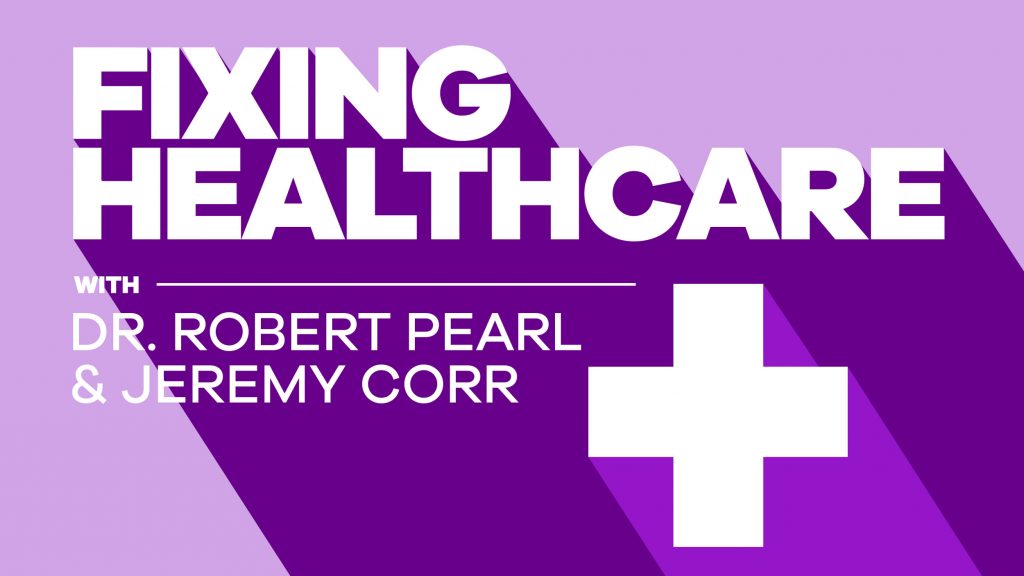At the end of Episode 16, Fixing Healthcare co-hosts Dr. Robert Pearl and Jeremy Corr turned to listeners for ideas and suggestions about the role of government in healthcare.
This regular feature of season three comes by way of the new Fixing Healthcare Survey. Please click the link and give us your input. Robert and Jeremy might share your ideas on a future episode.
This month, we heard from Marylou Barredo Wittenborn, RN; Lisa L. White; Jacques-Emman
uel Corriveau, MD and Jeffrey D. Dieden who told us that the government should take power away from private health insurance companies.
Transcript from Fixing Healthcare (Episode 16)
Jeremy Corr: Before we go, let’s take a few minutes to hear some of the many suggestions we’ve received from listeners who weighed in on the question: How can the U.S. government best improve healthcare? Don’t forget. There’s still time for you to add your ideas at robertpearlmd.com.
In episode two of this season (episode 14 overall), we read comments from listeners who liked their private insurance and opposed what they saw as steps towards socialized medicine. This time, we read ideas from listeners who feel the private sector and its incumbents have too much power and wield far too much influence.
Marylou Barredo Wittenborn, RN, recommends taking insurance companies, lobbyists, and PACs out of the legislation process and healthcare delivery. Lisa L. White suggests decreasing the power the insurance lobby wields over healthcare. She says, “It should have never been a profit center.” Jacques-Emmanuel Corriveau, MD, recommends our nation improve care delivery by value-based payment (and) achieve universal healthcare via a public option. Jeffrey D. Dieden favors allowing everyone to buy into Medicare if they do not have healthcare or like the healthcare they’re provided by their employer. Robbie, what is your take?
Robert Pearl: I concur with our listeners that special interests, including drug manufacturers, insurance companies and hospitals, have too much influence when it comes to legislation. The current rules were often passed following major campaign contributions, and they are not designed to help patients get better medical care at a more affordable price. I worry that unless we can flatten the rate of current inflation that no approach, whether private or through the government, will prove successful, and I’m doubtful that either the current healthcare incumbents or the elected members of Congress will have the courage required to make the difficult choices needed. It’s why I remained convinced that disruption is inevitable, whether from large, self-insured businesses or from offshore.
Jeremy Corr: Once again, thanks to Marylou Barredo Wittenborn, Lisa L. White, Jacques-Emmanuel Corriveau, Jeffrey Dieden, and everyone who has participated in the Fixing Healthcare survey on RobertPearlMD.com.
* * *
READ: Full transcript for Episode 16 with Samuel Shem
Fixing Healthcare is a co-production of Dr. Robert Pearl and Jeremy Corr. Subscribe to the show via Apple Podcasts or wherever you find podcasts. Join the conversation or suggest a guest by following the show on Twitter and LinkedIn.

